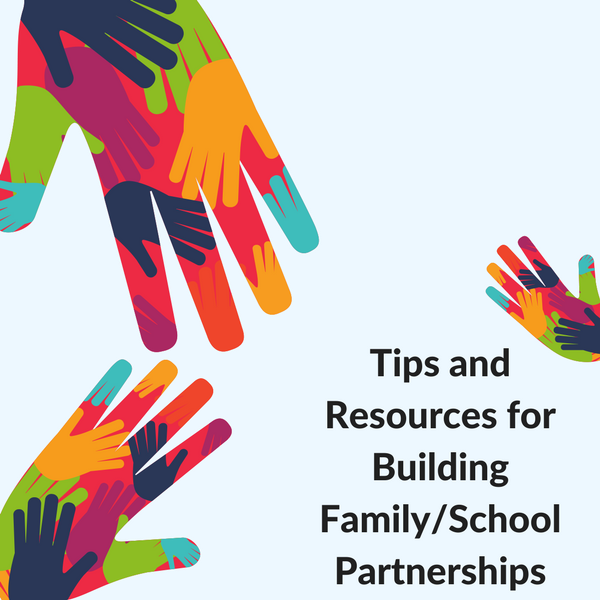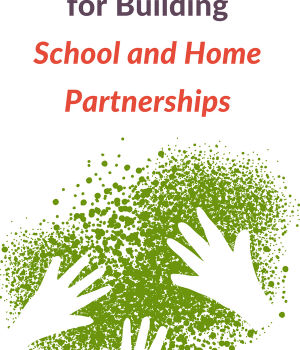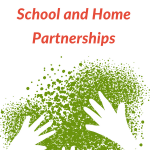Family and parental involvement in education is a crucial piece in a child’s academic and social growth. Families and schools all want the children to be successful. We have the same goal. So, let’s work together to make it happen.
Below you will find resources for helping families find the time, resources and confidence to help their children at home build literacy skills.
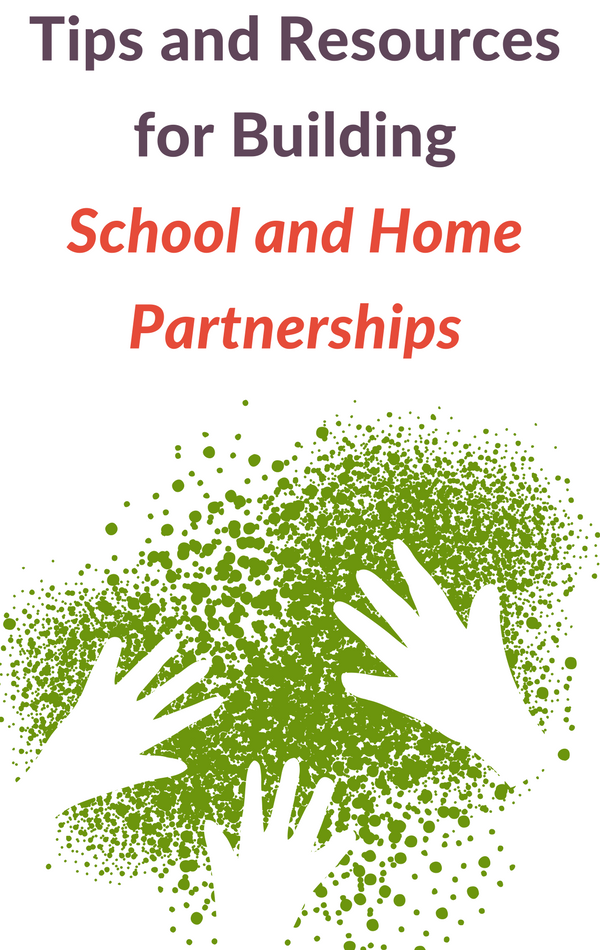 School Resources
School Resources
Parental Involvement at School
Families need to feel welcomed and invited to the school. Seek opportunities that will encourage families to want to visit and participate in school activities. Here are some tips.
- Find out the strengths of each family and then ask them to share their talents with the school in some way.
- Have events during the day and after school to accommodate parent work schedules. Vary the day of the week that these events occur also.
- Use a variety of communication techniques– email, phone calls, newsletters, texts, home visits, etc.
- Provide a yearly calendar to families so they can plan ahead and then follow up with monthly, weekly, and sometimes daily reminders.
Parental Involvement at Home
Provide parents and families with the tools they need to be successful at home. Here are a few ideas for encouraging parental involvement at home.
- Provide reading challenges. I have monthly Reading Challenges for you to use.
- Give flexible homework assignments. Try out Book Based Activity Calendars.
- Send home books for families to read together. Use these Take Home Book Bags.
- Recommend books to families. Suggest books from over 75 book lists we have on Growing Book by Book. Or send home this printable list of 101 Books Every Child Should Hear Before Kindergarten.
- Let families know how teachers can be reached with questions.
- Send virtual or hard copies of newsletters, tips, and ideas. Think bite-sized pieces.
- Provide specific strategies during family and school conferences.
The key to building a home and school relationship is to do lots of active listening. Listen to what your families need and then provide the resources to help them help the kids. And, don’t judge. Our families come to school on all different levels just like our kids do. Meet them where they are at and then help.
If you really want to build a family and school partnership, grab our Empowering Families to Find the Confidence, Time, & Resources to Build Literacy Skills at Home.
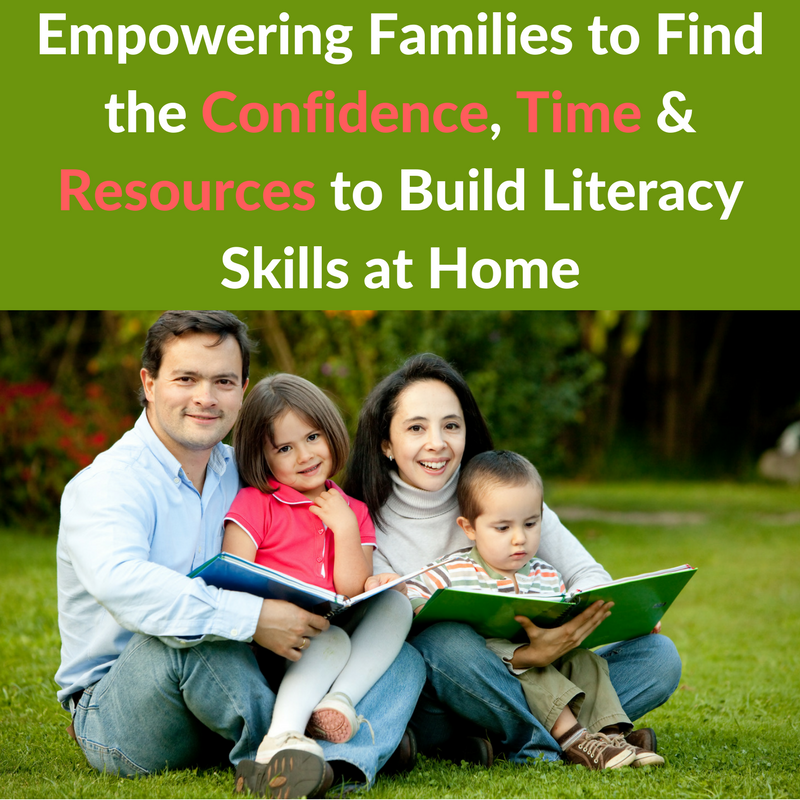 Family Resources
Family Resources
There are many helpful resources for helping families encourage and support literacy growth at home here at Growing Book by Book. Check out these posts.
Family Dinner Book Clubs
 Hold a monthly Family Dinner Book Club. Each month families read a book with the kids and then use our themed menu, table crafts, conversation starters, and family service project to create a dinner book club.
Hold a monthly Family Dinner Book Club. Each month families read a book with the kids and then use our themed menu, table crafts, conversation starters, and family service project to create a dinner book club.
Check out the archive of over 45 Family Dinner Book Clubs to choose from. You can even join our Family Dinner Book Club Facebook Page.
Homework Stations
Having tools and resources handy will make homework and extra practice efficient. Set up a rolling cart sight/spelling word station or a homework central station.
Finding Pockets of Time to Read
We can’t make more hours in the day, but we can make better use of the 24 hours each day we are given. Grab this free printable resource sheet full of ideas for finding pockets of time in your day to enjoy great books with kids.
FAQ
My biggest struggle for my Pre-K group is helping parents understand that reading is not the goal in preschool and pre-k, that pre-literacy skills are what is important.
Yes, communicating developmentally appropriate practices is key. Communication with parents about best early childhood practices is important. Helping families learn about phonological awareness is helpful. The What is Phonological Awareness? post will be helpful.
Parents give their kids tablets or phones instead of books. The children have no attention span to books in print. It’s sad. How can I get parents to encourage reading?
Yes, technology is a huge part of our world today. It can be extremely powerful in learning and communication AND it can also become very addictive. As with everything, we need to help find balance.
Recommending great literacy opportunities to families such as library events, newly released books, and holding hands-on learning activities for families at school are some of the ways to help kids see that reading is just as fun (if not more) than playing a video game.
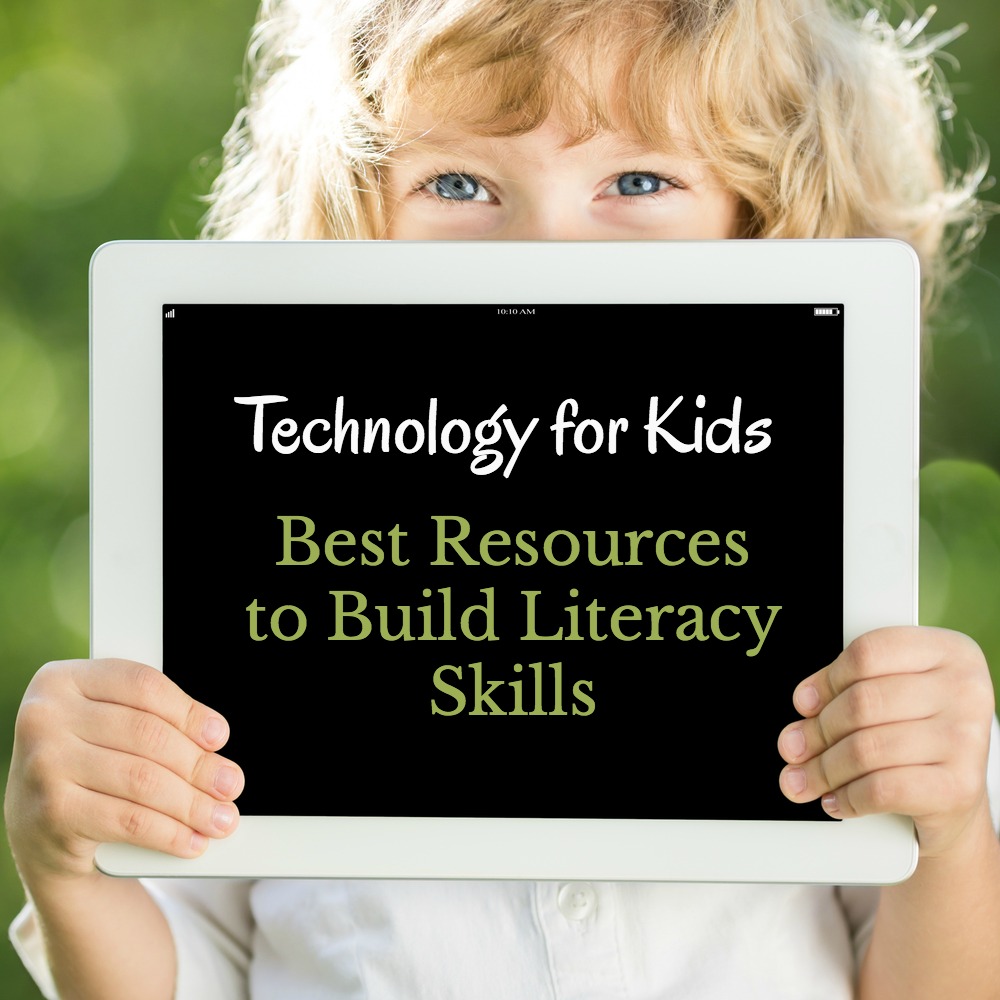 Also, share well-done educational technology resources with families. Here is a great resource to direct them too.—>Technology for Kids to Build Literacy Skills.
Also, share well-done educational technology resources with families. Here is a great resource to direct them too.—>Technology for Kids to Build Literacy Skills.
Family and parental involvement in education requires us to truly form partnerships to help kids grow into readers. Varied communication, active listening, and having a toolbox of tools ready to share and help will help you have great gains in building those family and school partnerships.
